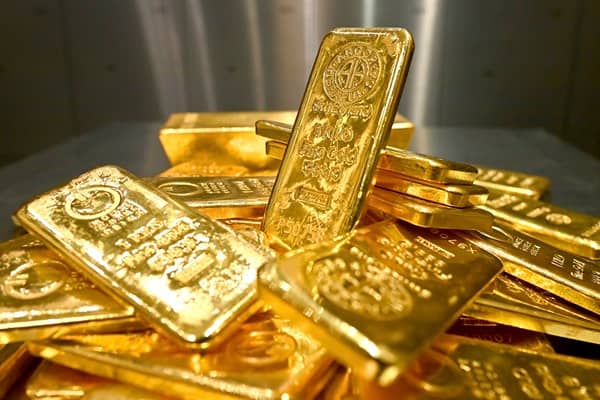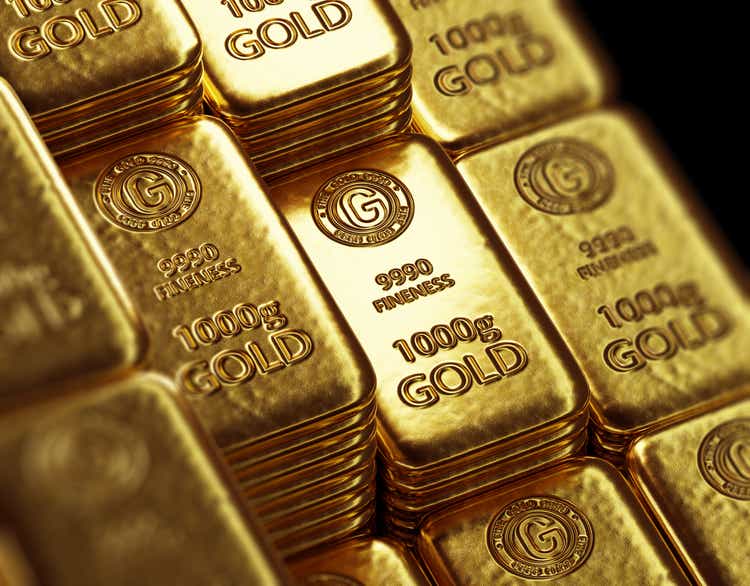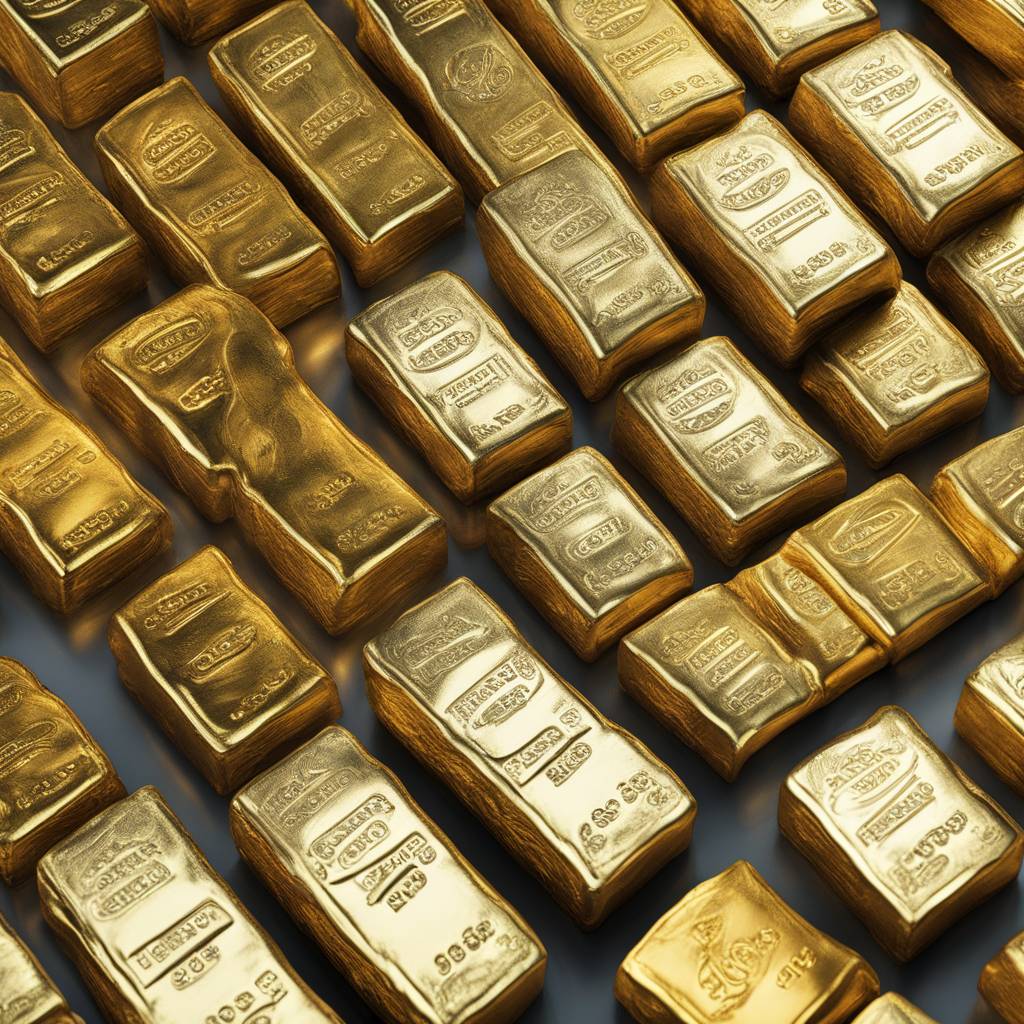












Gold prices demonstrated resilience on January 20, 2025, as the U.S. dollar softened amid Donald Trump's presidential inauguration. Investors are closely monitoring the inauguration for potential policy impacts on inflation and Federal Reserve decisions. Recent data showing subdued core inflation, weaker producer price inflation, and declining retail sales have bolstered expectations for interest rate cuts by the Federal Reserve. Fed Governor Christopher Waller emphasized the importance of monitoring inflation trends, which could influence monetary policy moving forward. [519ee927]
While reduced geopolitical tensions in the Middle East have lessened the appeal of gold as a safe-haven asset, demand from central banks remains robust. Economic uncertainties continue to reinforce gold's role as a safe-haven investment, particularly in light of the shifting political landscape. The ongoing discussions surrounding interest rate adjustments and inflation management are likely to impact gold prices in the near future. [519ee927]
Gold prices have been on an upward trajectory recently, driven by easing core inflation in the U.S. and growing expectations for a Federal Reserve interest rate cut in mid-2025. This surge is supported by the potential decline in U.S. Treasury yields, which could further bolster gold's appeal as an investment. Federal Reserve officials have emphasized their ongoing commitment to combating inflation, adding complexity to the market dynamics. Geopolitical tensions in the Middle East also influence gold's demand as a safe-haven asset, reflecting investors' concerns about global stability. [6d8e96f2]
The Federal Reserve's comments on rate cuts have fueled the surge in gold prices. The precious metal has been hitting record highs in each session for over a week, driven by positive data from the U.S. economy. The U.S. jobs report for March is set to be released, providing further insight into the state of the economy. Additionally, new inflation data is expected next week. Lower interest rates reduce the opportunity cost of holding gold, making it an attractive investment option. [0e3358dd]
J.P. Morgan's CEO, Jamie Dimon, raises concerns about the sustainability of the U.S. economic boom, pointing to factors such as fiscal spending, the green economy, remilitarization, and global trade restructuring. Dimon believes the odds of the Federal Reserve's success in avoiding a recession are lower than what is currently priced in and suggests that interest rates could rise to over 8% in the coming years. Gold prices have reached record highs as central banks, including China's, increase their gold reserves. The surge in gold prices reflects growing unease among investors about potential economic challenges in the future. [bfb81a66]
Gold prices rise due to China's stimulus measures and low U.S. inflation. China's property sector measures boost market confidence significantly. Gold hits record highs with expectations of U.S. interest rate cuts. China introduced a package of measures to stabilize its property sector, including 1 trillion yuan in funding and eased mortgage rules. The market responded positively, leading to a surge in gold prices. The London Bullion Market Association reported a record high for gold, reflecting increased demand as a safe-haven asset. U.S. consumer inflation data for April came in below expectations, fueling hopes for interest rate cuts by the Federal Reserve. The outlook for gold remains bullish as traders anticipate continued support from central banks and favorable economic policies. [61cc27f1]
China's bullion imports dropped significantly last month as demand in the world's largest consumer waned due to record prices. International purchases of physical gold dropped to 136 tons in April, a 30% reduction from the previous month and the lowest total this year. The reduction in imports comes as gold prices continue to be largely impacted by U.S. interest rates. Chinese households and investors have flocked to gold as a haven for safety amid a real estate crisis, turbulent stock markets, and a weakening yuan. China's central bank has been increasing its gold holdings for the 18th straight month to diversify its reserves and safeguard against currency devaluation. However, the rate of these purchases slowed in April. The Shanghai Gold Exchange has tightened margin requirements on some contracts to reduce risk-taking. Market analysts will monitor the effects of China's reduced gold imports on global bullion prices and the commodities market. [ffa4fea9]
According to the World Gold Council, central banks are expected to increase their purchases of gold in the next 12 months. The council's data shows that 29% of central bank respondents anticipate adding more gold to their reserves. More than four in five respondents expect reserve managers to boost global holdings of bullion, marking the highest confidence level on record for the survey. The motivation behind these planned purchases includes a desire to rebalance gold holdings, domestic gold production, and concerns about financial market risks and rising inflation. [7be3181f]
Central banks from advanced economies, including China and its allies, are planning to buy more gold to hedge risks such as inflation and economic shocks. A World Gold Council survey found that 29% of 70 central banks are planning to buy gold over the next 12 months, with 15% of those in advanced economies and 40% of emerging market central banks planning to do so. The central banks' key reasons for gold purchases include rebalancing reserves and hedging against risks such as rising inflation, U.S. dollar exposure, and market instability. Additionally, 56% of central banks from advanced economies expect the dollar's share of global reserves to fall over the next five years. The decline in the U.S. dollar's share of global reserves is referred to as 'stealth erosion' by the International Monetary Fund. [761e6689]
At the recent LBMA 2024 conference, central banks' demand for gold was highlighted as expected to rise despite recent slowdowns. Enkhjin Atarbaatar from the Central Bank of Mongolia, Marek Sestak from the Czech National Bank, and Joaquín Tapia from Banco de México participated in a panel discussion. The Czech National Bank has purchased 32.8 tonnes of gold since March, holding a total of 44.8 tonnes (2.4% of reserves), with plans to increase holdings to 100 tonnes. The Bank of Mongolia holds 4.9 tonnes (8.7% of reserves) and has sold 3.5 tonnes this year. Banco de México currently holds 120.4 tonnes (4.2% of reserves) and values gold for diversification. Geopolitical uncertainty and falling interest rates may further boost gold prices, as central banks increasingly view gold as a potential alternative to the U.S. dollar, despite challenges related to gold market liquidity. [7ae9e53a]
Thailand, like China, is currently driving up the price of gold by becoming a gold buyer, shedding its long-standing price sensitivity to gold. This shift in the global gold market, with pricing power shifting to the East, could potentially lead to a transformation in the international monetary order. Thailand has been a net importer of gold since November 2023, accumulating gold as a safe haven investment due to geopolitical tensions. The Bank of Thailand has increased its gold reserves nearly threefold since the Great Financial Crisis. Thailand's change in gold buying behavior may be related to the mBridge international payments project, which aims to explore a multi-central bank digital currency (CBDC) platform shared among participating central banks and commercial banks. The mBridge project, coordinated by the BIS Innovation Hub in Hong Kong, could allow for non-dollar trading and storing surpluses in non-dollar assets, contributing to de-dollarization. The gold recycling theory suggests that countries store their surpluses in gold rather than U.S. Treasuries. Russia, Saudi Arabia, and China are all involved in the mBridge project and are actively buying gold, potentially signaling a game changer in the gold industry and the international monetary order. [502c4159]
China's central bank did not buy any gold in the month of June, marking the second straight month of no addition to reserves. The People's Bank of China held 72.8 million troy ounces of gold at the end of June. Some analysts believe that the PBOC could resume buying to diversify its reserves and hedge against currency depreciation. The high gold price, which reached an all-time high above $2,400 an ounce in May, may have deterred buyers. Central banks worldwide are on a record gold-buying spree, with total consumption of 1,037 tonnes in 2023. [1f09c9e0]
China's central bank did not purchase any gold in June, marking the second consecutive month of no gold purchases. Gold prices peaked at $2400 an ounce in May but suffered a decline as China awaits price correction to around $2200 per ounce. Despite this, gold prices were boosted by emerging economies like India & Turkiye. India increased its gold reserves by nine tonnes in June, bringing the total reserves to 841 tonnes, the largest monthly increase in two years. China was the largest institutional buyer of gold in 2023, but economic slowdown and property woes have forced China to wait for gold prices to drop before resuming buying. Gold prices are expected to continue rising due to geopolitical uncertainties, with India leading the gold demand in 2024. Central banks and emerging markets are crucial to sustaining gold demand as supply challenges loom. [91f41f8f]
Gold's record surge is fueled by strategic moves by central banks in BRICS+ and neutral countries amid global geopolitical and economic uncertainty. Central banks in BRICS+ and neutral countries are heavily investing in gold, reflecting an ongoing shift away from U.S. dollar reliance. Political instability, inflation, and dollar weaponization bolster gold's appeal. Gold's gains are unsurprising given recent geopolitical turbulence, active wars, influential elections, and sociopolitical tensions worldwide. Retail demand for gold is falling while central bank purchases are increasing. The most active central banks in purchasing gold in Q1 2024 were the People's Bank of China, the Central Bank of Turkey, the Reserve Bank of India, and the National Bank of Kazakhstan. The rise and expansion of BRICS+ contribute to the ongoing phenomenon of gold demand. Non-Western gold purchases are likely to continue outstripping Western purchases. Gold-backed economies dethroning the U.S. dollar is possible in the long term, although complete dedollarization of the Global South is unlikely. Gold is seen as the only workable and viable alternative to the American currency. [3347c756]
Looking ahead, Wells Fargo's John LaForge predicts that gold prices could reach between $2,800 and $2,900 an ounce by 2025, primarily driven by demand from emerging market central banks. LaForge emphasizes that while the U.S. economy is expected to support the dollar, limiting investment demand for gold, the increasing purchases by emerging market central banks since 2022 indicate a strong potential for further growth in reserves. He also notes that the Federal Reserve is likely to cut rates only once in 2025, suggesting a cautious approach to monetary policy. LaForge recommends a 'dumbbell strategy' for investors, balancing investments in oil and gold, while Tracy McMillian advocates for commodities as a hedge against event risks. [661378b8]